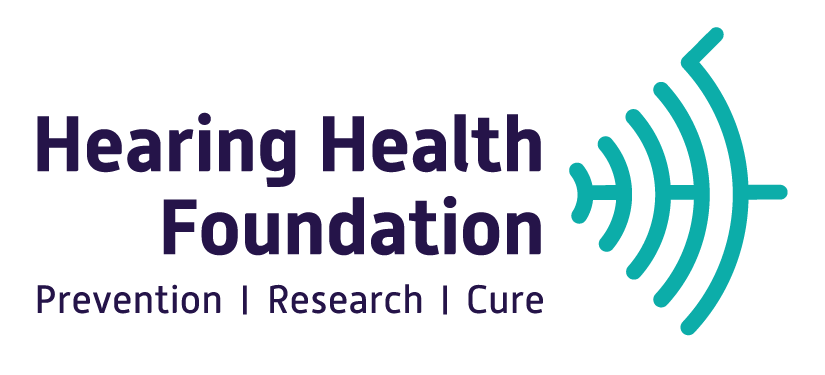By Deanna Power
Hearing loss is one of the most common disabilities in the U.S., affecting 48 million Americans. If you or a loved one has been diagnosed with hearing loss, there could be help available. The Social Security Administration (SSA) offers financial benefits for people who are unable to work due to hearing loss.
There are two types of disability benefits someone experiencing hearing loss could qualify for: Social Security Disability Insurance and Supplemental Security Income. Medical qualifications will be exactly the same for both programs, but each have their own eligibility criteria.
The first type of disability benefits, Social Security Disability Insurance (SSDI) is awarded when an adult (ages 18-66) is no longer able to work due to hearing loss.
Only people who were previously employed and have been working throughout most of their lives will qualify for SSDI benefits. To find out if you have worked enough, you can determine whether you have earned enough work credits based on your age on the SSA’s website.
The second form of disability benefits is Supplemental Security Income (SSI). While there are no work requirements with SSI benefits, there are strict financial limitations. An adult SSI applicant cannot earn more than $733 per month.
For children applying for SSI benefits, parents’ income will be evaluated. The SSA is not as strict with household income limits evaluating children, but childhood SSI financial limitations are still difficult to meet. If you are married or have other children, your household income limit will be higher.
Medically Qualifying with Hearing Loss
When you apply for disability benefits with hearing loss, the SSA will compare the severity of your condition to its own medical guide known as the Blue Book. The Blue Book will list exactly how severe your hearing loss must be to be eligible for disability benefits. Hearing loss can be found in both the children’s and adult versions of the Blue Book.
The Blue Book listing for hearing loss is found in Section 2.10. For hearing loss not treated by cochlear implantation, you will need to have medical tests showing one of the following criteria:
You have an average air conduction hearing threshold of 90 decibels or greater in your better ear. You also must have an average bone conduction hearing threshold of 60 decibels or greater.
OR you have a word recognition score of 40 percent or less in your better ear.
If you’ve received a cochlear implant, you will be considered medically disabled by the SSA for one year after the surgery. After 12 months, the SSA will review your case. If you have a word recognition score of 60 percent or less determined using a specific test, you will still qualify. If your hearing has improved, you will no longer qualify for disability benefits.
A cochlear implant is only “automatically” disabling after surgery. Before surgery, you will need to meet one of the SSA’s other criterion.
The childhood listing is found in Blue Book Section 102.10. Children under age 5 will need to have an average air conduction hearing threshold of 50 decibels or greater in their better ear. Between the ages of 5 and 18, your child will need to have medical records showing one of the following:
An average air conduction hearing threshold of 70 decibels or greater in the better ear, plus an average bone conduction hearing threshold of 40 decibels or greater.
OR a word recognition score of 40 percent or less in the better ear, determined by using a standard list of phonetically balanced single-syllable words.
OR an average air conduction hearing threshold of 50 decibels or greater in the better ear, plus a marked difficulty in speech and language.
If your child has a cochlear implant, he or she will be considered medically disabled until age 5 or one year after implantation, whichever is later. After your child turns 5, or 12 months pass since surgery, your child will need a word recognition score of 60 percent or less on the Hearing in Noise Test (HINT or HINT-C) to stay on SSI.
Applying for Benefits
If you are interested in applying for disability benefits due to your hearing loss, your first stop should be the SSA’s website. The SSA has guides outlining exactly what paperwork and personal information you’ll need to apply.
If you are applying for SSDI, you can complete the entire application online. This is the easiest way to apply for disability benefits, as you can save your application and return to finish it at a later time. Be sure to list your spouse and any minor children, as they could receive benefits as well if your SSDI application is approved. SSI applicants can only file for benefits at their local SSA office. Fortunately, there are multiple SSA offices in every state.
If you have not had one of the SSA-recommend examinations performed to evaluate your hearing loss, it is wise to speak with your audiologist and have one or all of the tests performed. The more medical records you have show how severe your hearing loss is, the better your chances of approval.
Deanna Power is the Director of Community Outreach at Social Security Disability Help. She first started working with people with disabilities by volunteering with Best Buddies in college, and now specializes in helping people of all ages determine whether or not they medically qualify for disability benefits. If you have any questions, she can be reached at drp@ssd-help.org.


